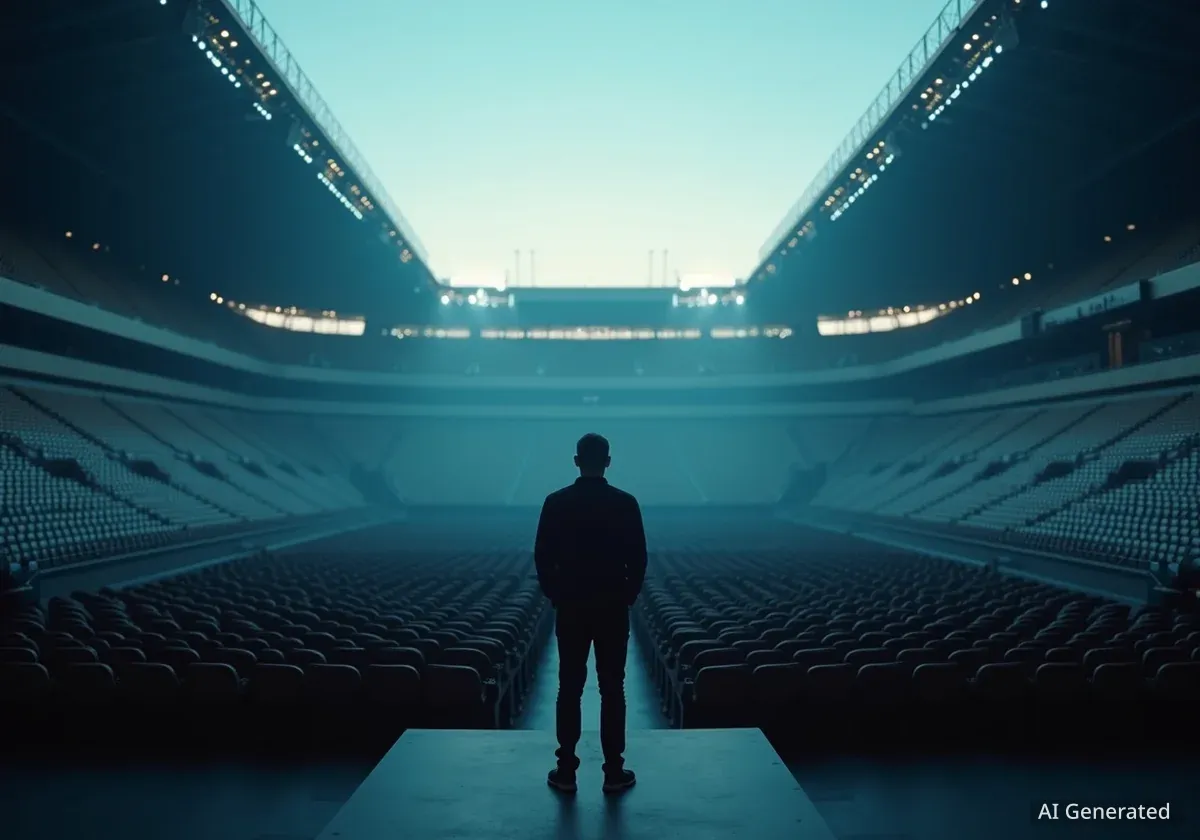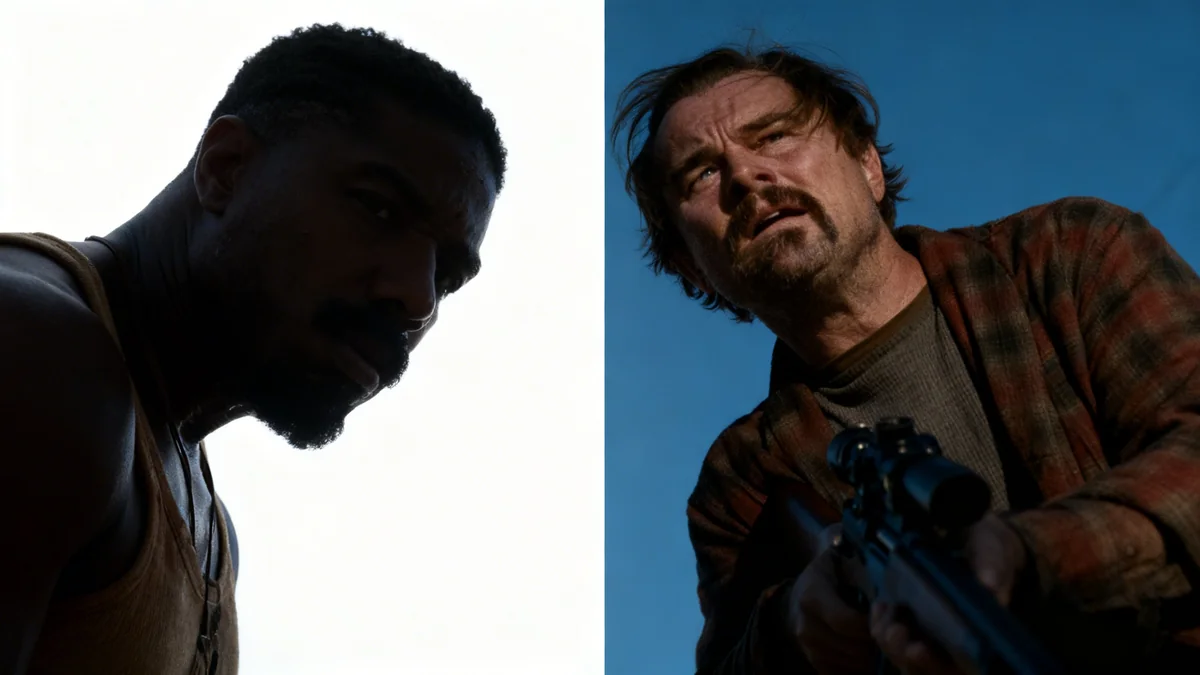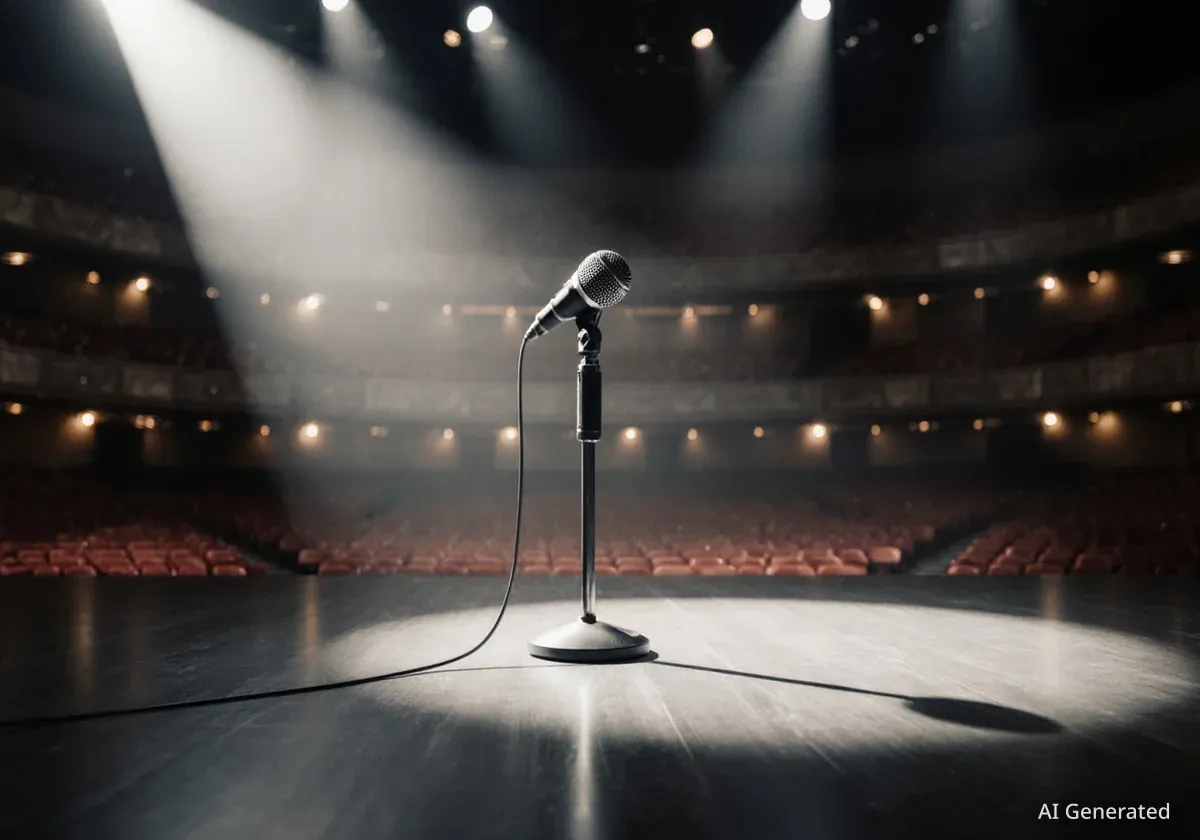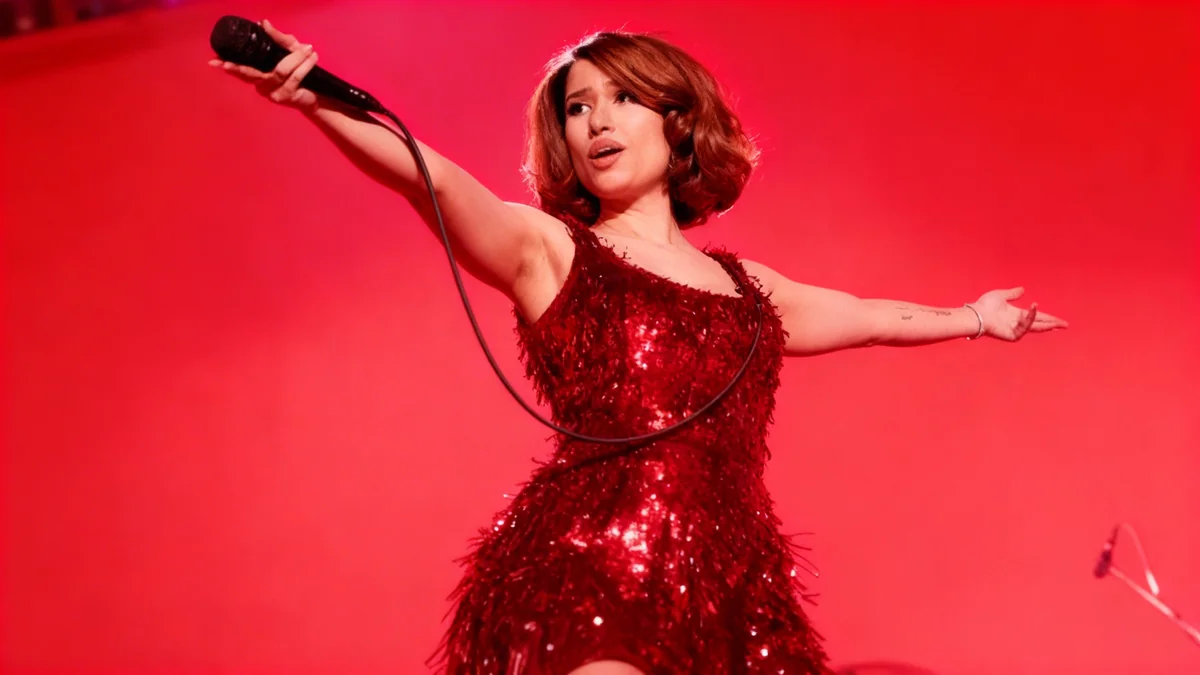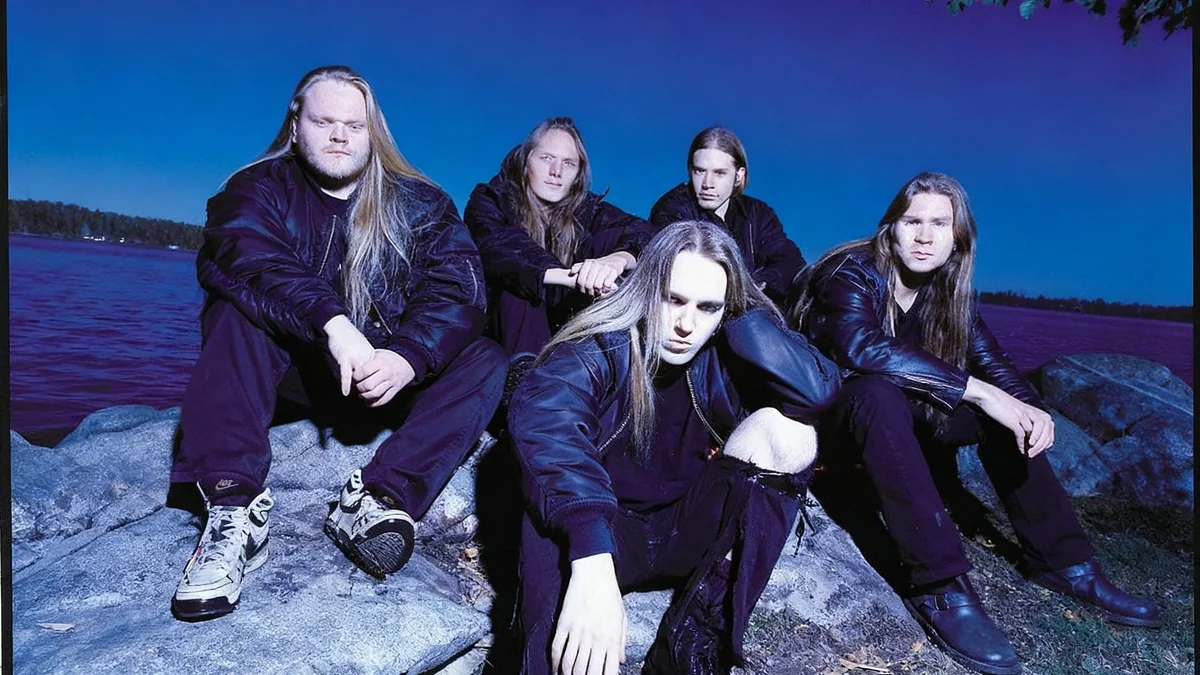Ozzy Osbourne, the legendary Black Sabbath frontman, performed his final concert, 'Back to the Beginning,' at Villa Park for 42,000 fans. This event, held less than three weeks before his passing, was a major undertaking. His posthumous memoir details the challenges and emotions surrounding this significant performance, highlighting his wife Sharon's determination to make it happen despite his severe health issues.
Key Takeaways
- Ozzy Osbourne's final concert, 'Back to the Beginning,' took place at Villa Park.
- The event drew 42,000 live attendees and 5.8 million online viewers.
- Sharon Osbourne organized the show, benefiting Birmingham Children's Hospital, Cure Parkinson's, and Acorns Children's Hospice.
- Osbourne battled multiple severe health issues, including back surgery, pneumonia, sepsis, and Parkinson's disease, leading up to the performance.
- Black Sabbath reunited for the concert, marking a significant moment in music history.
The Genesis of 'Back to the Beginning'
The idea for a farewell concert, dubbed 'Back to the Beginning,' emerged around the time of the Birmingham Commonwealth Games in 2022. Sharon Osbourne initiated the plan, envisioning a grand send-off for her husband. Ozzy, at the time, expressed doubts about his ability to reach 2025, let alone perform. He believed no one would be interested in attending or watching such an event.
Sharon, however, was determined. Her goal was to provide Ozzy with one last opportunity to connect with his fans. The event featured a reunion of Black Sabbath and performances by other notable bands. Crucially, all proceeds from the concert were designated for charitable causes. These included Birmingham Children's Hospital, Cure Parkinson's, and Acorns Children's Hospice. This philanthropic aspect added another layer of meaning to the monumental event.
Concert Impact
- Live Attendance: 42,000 fans at Villa Park
- Online Viewers: 5.8 million worldwide
- Charities Benefited: Birmingham Children's Hospital, Cure Parkinson's, Acorns Children's Hospice
A Battle Against Illness
Ozzy Osbourne's journey to the stage was marked by a series of severe health crises. The family had planned to relocate from Los Angeles to their Buckinghamshire home in December 2024. This move was intended to give him seven months to prepare for the July concert. However, his health deteriorated significantly.
He experienced a relapse of his back issues, followed by pneumonia. For someone with Parkinson's, pneumonia is particularly dangerous. It triggered his emphysema, causing one of his lungs to collapse. His primary doctor refused to perform back surgery, citing his weakened state and the high risk involved. Ozzy and Sharon sought multiple medical opinions until a team at Cedars-Sinai hospital agreed to operate in January.
"When Sharon first mentioned the idea of the Back to the Beginning gig to me, around the time of the Birmingham Commonwealth Games in 2022, I didn’t think there was much chance of me making it to 2025." - Ozzy Osbourne
Overcoming Sepsis and Further Complications
The back surgery involved filling vertebral cracks with a human cement-like substance. Following this, Ozzy developed sepsis, a life-threatening infection. His age, Parkinson's, and existing blood clots made his survival uncertain. The intense antibiotic treatment for sepsis caused severe digestive issues, making it difficult for him to eat. This further weakened his already fragile condition.
Sharon and the family were deeply concerned, fearing the worst. After two months of intensive intravenous antibiotic treatment, Ozzy unexpectedly recovered. This recovery was a critical turning point, allowing him to proceed with plans for his final show. However, his health struggles continued, as he contracted pneumonia again shortly after recovering from sepsis.
Parkinson's Disease and its Impact
Parkinson's disease is a progressive disorder that affects the nervous system and the parts of the body controlled by nerves. Symptoms often begin gradually and worsen over time. They can include tremor, stiffness, slow movement, and impaired balance. For Ozzy Osbourne, living with Parkinson's significantly complicated his recovery from other illnesses and affected his physical capabilities, including his ability to walk and perform.
The Journey to England and Pre-Show Anxiety
The family finally departed for England at the end of May. The travel party included Ozzy, his nurse, Sharon, their eldest daughter Aimee, and a private security guard. The journey itself presented challenges. Sharon, concerned about potential theft at their Los Angeles home, insisted on bringing all valuable possessions. This included watches, chains, diamond rings, and $25,000 in cash, all carried in Ozzy's carry-on bag.
Airport security was surprised by the volume of valuables, requiring a thorough inspection and counting of all items. Adding to the stress, a booking error meant the family was not seated together on the flight. This created difficulties, as Ozzy required assistance to move around. Sharon's frustration led to a heated exchange with airline staff. The situation culminated when Ozzy, unable to walk independently, was made to transfer from his wheelchair and navigate a body scanner, nearly losing his balance.
Hospitalization and Growing Expectations
Just three days after arriving in England, Ozzy was admitted to the hospital due to high blood pressure. He remained hospitalized for eight days, filled with worry about the upcoming concert. The event was continuously expanding, with major artists like Guns N' Roses, Metallica, and Steven Tyler joining the lineup. This increasing scale heightened Ozzy's anxiety, making him compare it to a 'metal's answer to Live Aid.'
He repeatedly expressed doubts to Sharon, suggesting they prepare a video to play in case he couldn't perform. Sharon, however, remained resolute. She reassured him that there would be no backup plan. Her instruction was clear: "If you can’t sing on the night, just talk to the crowd and thank them. All you need to do is get up there and be Ozzy."
Rehearsals and the Big Day
Rehearsals with Black Sabbath began about three weeks before the concert. They took place at a secluded rural studio owned by a member of The Prodigy. This quiet location allowed the band to focus. It was a moment of reunion for the original members, who had shared 57 years in the music industry. Despite their individual health challenges—Bill Ward's heart condition, Tony Iommi's shoulder issues, and Ozzy's mobility limitations—they gradually regained their old form, enjoying the camaraderie and humor that defined their early days in Aston.
The presence of their long-standing road crew further added to the reunion atmosphere. The team, also aging, shared a sense of family. As the concert approached, the weather took a turn for the worse, with heavy rain at Villa Park. However, the day before the show, the weather improved, becoming warm and pleasant, a favorable sign for the outdoor event.
Concert Day Emotions and Performance
On Saturday, July 5, the gates opened at 11:00 AM. Ozzy arrived at 6:00 PM. His dressing room became a hub of activity, with his road crew, wardrobe assistant Martha, Slash, and his children visiting. The atmosphere was emotional, filled with happy tears. Ozzy reflected on his childhood home, located just a quarter-mile away, where fans were gathering to take photos.
Unable to stand for the performance, Ozzy sang from a specially designed black throne. The throne featured skull armrests and bat wings, enhancing his iconic stage presence. There were early discussions about making the throne fly or shoot water, but these ideas were ultimately abandoned. As the curtain rose, revealing 42,000 faces in the stadium and 5.8 million watching online, Ozzy's initial nerves vanished. The overwhelming emotion of the moment, realizing the vast number of people who appreciated his work, took over.
Black Sabbath's Enduring Legacy
- Formation: 1968
- Original Members: Ozzy Osbourne (vocals), Tony Iommi (guitar), Geezer Butler (bass), Bill Ward (drums)
- Genre: Pioneered heavy metal music
- Impact: Influenced countless bands across rock and metal genres for over five decades.
A Deeply Personal Farewell
Ozzy's performance began smoothly with songs like "I Don't Know," "Mr. Crowley," and "Suicide Solution." The experience was enjoyable for him. However, during "Mama, I'm Coming Home," emotions overwhelmed him. This song, a favorite of Sharon's and co-written with the late Lemmy Kilmister of Motörhead, held deep personal significance. It represented his final hurrah after six years of health struggles, during which he lost his ability to walk and perform daily tasks independently.
He struggled to contain his tears as the crowd illuminated the stadium with their phone lights, creating a powerful, supportive visual. This moment felt less like a funeral and more like a celebration of his career and connection with fans. The crowd, sensing his emotion, began singing the lyrics back to him, providing immense uplift. After regaining his composure, he performed "Crazy Train" before the Black Sabbath set.
The Black Sabbath Set and Final Reflections
The Black Sabbath members were initially unsure if Ozzy could manage two full sets. However, the performance was flawless. The crowd's chant of "War Pigs" was electrifying. They continued with "N.I.B.," "Iron Man," and "Paranoid." Ozzy's only frustration was his inability to move freely on stage. His weakened legs and poor balance confined him to the throne, a stark reminder of his physical limitations. Despite this, he described the concert as the "best medicine" he had received since his health issues began in 2019, calling it a "magical night."
Ozzy Osbourne passed away from a heart attack at his home on July 22, at the age of 76. His memoir, Last Rites, published posthumously, offers a final look into the life and thoughts of a rock icon. He reflected on mortality, expressing a desire for burial over cremation and the fear of his wife Sharon preceding him in death. He also shared a humorous anecdote about a recent addiction to Pink Lady apples, which surprisingly ceased once he returned to England.
For Ozzy, the stage was a sanctuary, a place where he felt free from his demons. He spent his life pursuing various highs, but ultimately realized that the true high was the roar of the crowd, the thumping bass, and thousands of voices singing his words back. This, he concluded, was "the best drug I ever took."
Ozzy's Final Words on Stage
"I’ve been so lucky to have had so many wonderful fans. God bless you all."
